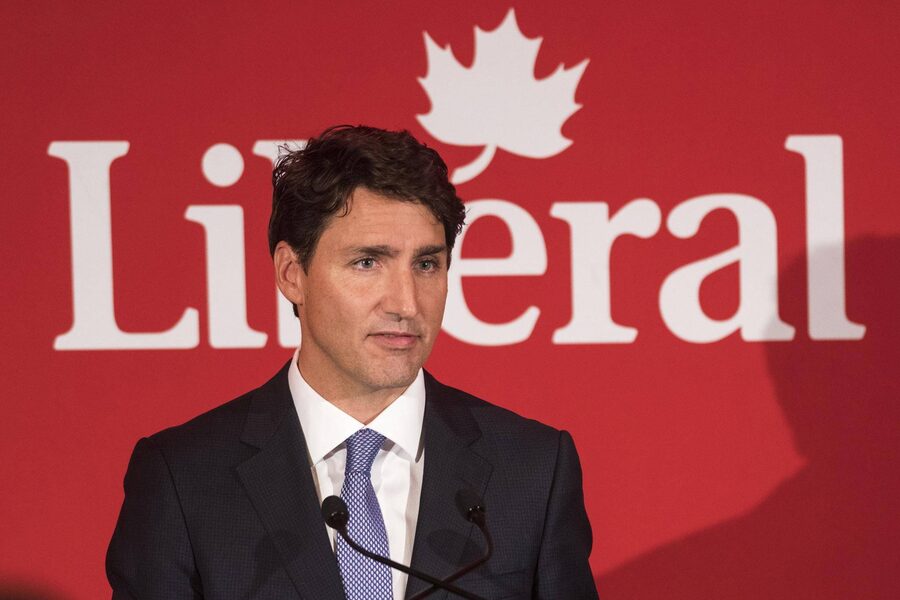Politics
Canada’s Liberal Party Facing Political Oblivion Under Justin Trudeau

More than a decade ago, Justin Trudeau seized a demoralized, strife-torn, third-place Liberal Party and transformed it into his own image, winning election after election. There are few voices of criticism within the Liberal party because the voices that do matter are all important because of him.
However, according to the most recent surveys, the Liberals are on track for not only defeat, but destruction in the next federal election. Even the most ardent Trudeau supporters must be starting to ponder if it’s time for a change at the top.
The Conservatives established a significant lead over the Liberals last summer and have maintained it ever since. That lead may potentially be increasing. Abacus Data’s weekend survey for the Toronto Star shows the Tories leading the Grits by 19 percentage points in the popular vote, 43% to 24%, with the NDP at 18%.
The Liberals are in third position in both the Prairies and British Columbia. The Conservatives have more than 50% support in Atlantic Canada and lead the Liberals by 14 points in Ontario. But here is the genuinely astonishing number: According to Abacus, the two parties are statistically deadlocked in Quebec, a historically liberal bastion, with the Bloc Québécois at 34%, the Conservatives at 26%, and the Liberals at 25%.
(The online survey of 2,398 adults was conducted from February 1 to 7, with a margin of error of plus or minus two percentage points, 19 times out of 20.)
Provincial sample sizes are modest, with a wider margin of error than the national total. That’s why the Léger poll released last week is so significant. An online survey of 1,032 Quebec voters released earlier this month found the Bloc Québécois at 29%, the Liberals at 28%, and the Conservatives at 24%.
Two surveys show the Conservatives competing with the Liberals in Quebec. What does this mean?
It implies that if an election were conducted tomorrow, the Liberals would lose the majority of their 24 seats in Atlantic Canada and at least some of their 34 seats in Quebec.
The Conservatives would significantly reduce Liberal strongholds in suburban Ontario and British Columbia, while the NDP may win seats from them in the downtowns. The prairies would remain a liberal desert.
Some Liberals feel Mr. Trudeau is the ideal leader to save the furniture, as the saying goes, and that even if he loses the next election, the Prime Minister will protect the Liberal base for a successor to build on. Those who believe that should reconsider.
The Liberals under Mr. Trudeau risk a historic defeat that could approach the disasters of 1958, 1984, or 2011. According to polling expert Philippe Fournier of 338Canada.com, the argument that there is still time to turn things around appears to be “naive wishful thinking.”
“The Conservatives already have their winning coalition of voters,” he wrote on Sunday. Barring anything terrible, that vote is now final.
So, is it time for Trudeau to step down? Voters seem to believe so.
Data Dive with Nik Nanos: The national mood is dour—good news for the Conservatives
According to Nik Nanos’ poll for The Globe and Mail, 46 percent of Canadians believe Mr. Trudeau has done a poor job as Liberal Leader, while 25% think he has done an exceptional job. When asked how the Liberals could improve their prospects of winning the next election, 39% said they should replace Mr. Trudeau. Only 3% thought the party’s best option was for him to remain.
(The hybrid phone and online poll of 1,114 adults took place between January 29 and 31, with a margin of error of plus or minus 2.9 percentage points 19 times out of 20.)
One of the most significant responsibilities of a political leader is to leave their party in good standing for their successor. Stephen Harper not only reunited the conservative movement and gave nearly ten years of rule, but he also left the Conservative Party with strong finances and 99 seats in the House following his 2015 election defeat.
He has a responsibility to leave a strong Liberal Party to the next leader. He must honestly examine himself whether being at the party’s helm is the best way to guarantee that outcome. Most voters appear to have come to their own judgments.
Source: The Globe and Mail








































